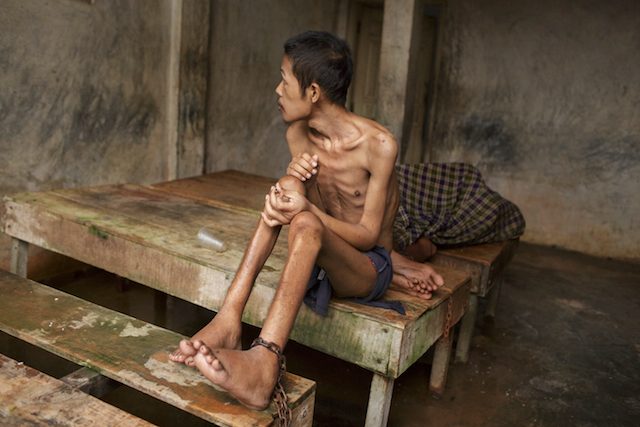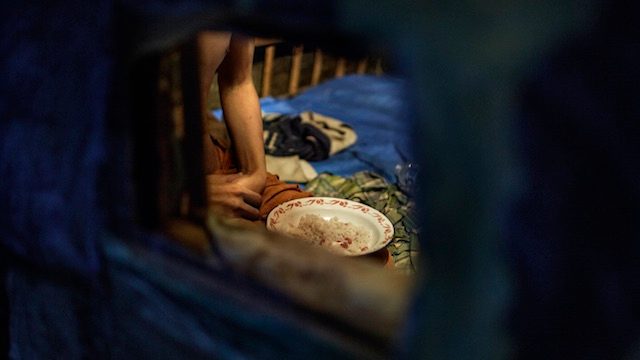SUMMARY
This is AI generated summarization, which may have errors. For context, always refer to the full article.

World Mental Health Day (WMHD) is commemorated on October 10 – a day for global mental health education, awareness, and advocacy. It matters because mental health is an important issue worldwide due to the impact on human rights and quality of life of those affected and their families.
Supporters come to celebrate this annual awareness program to bring attention to mental illness and its major effect on peoples’ lives worldwide. In some countries this day is part of the larger Mental Illness Awareness Week.
The theme for this year’s WMHD is Dignity in Mental Health – Psychological and Mental Health First Aid For All. There are two underlying aspects to be understood: dignity for those who have mentally illnesses and psychological first aid or treatment.
Indonesia continues to face challenges in both aspects.
First, Indonesia should address the stigma associated with mental illness so that dignity is promoted and respected. Despite the fact that Indonesia had passed its most comprehensive Mental Health Law in 2014, which aims to uphold for the rights of people with mental problems and people with mental disorders, the criticisms launched by international media and organizations such as Human Rights Watch are almost similar to the time when the bill hadn’t been passed into law.
(READ: Shackled, sexually abused: Mentally ill Indonesians ‘live in hell’)
Critics have grown impatient because the government has not taken prompt actions on eradicating violations of human rights, through practices of shackling, caging and locking the mentally ill.
In 2013, the Health Ministry released its latest findings in the National Health Research that the number of people with mental disorders who were being restrained had increased from the previous 18,000 to 56,000. It is a devastating fact and in Indonesia, it is a widespread problem.
Solving the problem
Indeed we can put an end to the violations of human rights by implementing the Mental Health Law in its entirety.
What is particularly good about the Indonesian Mental Health Law? The Mental Health Law, or Law No. 18/2014, is ambitious in playing its role as a new foundation for the Indonesian mental health system. It consists of 10 chapters: general provisions; mental health care; mental health care system; resources in mental health care delivery; rights and obligations; mental health examination; duties, responsibilities and authority; community participation; criminal provisions; and concluding provisions.
The concluding provision points out that implementing regulations of this law must be enacted by the government by no later than one year following the enactment of this law. But we’re running behind schedule – with only one derivative regulation completed – but we still dare to put hope in the government especially which has pushed for a so-called “Mental Revolution.”
It is especially important to implement this law in Indonesia with a growing number of individuals suffering from mental illnesses, suicides, and natural disasters like volcanic eruptions, floods, landslides and tsunamis – all of which contribute to increase mental illnesses among the victims.
As the fourth-largest population in the world, with its multidimensional problems, Indonesia must implement the National Mental Health Law as the foundation to our new and reformed mental healthcare system.
Mental illness after disasters
This is where the second point of this year’s WMHD theme plays a major role. Many people require basic psychological and mental health first aid to prevent their health from deteriorating and to empower them to take action to improve their mental health – especially after natural disasters.
Psychological first aid is a first-line psychosocial support after a crisis event. In various countries, psychological first aid has been incorporated into disaster preparedness and response. Indonesia is prone to natural disasters and the Health Ministry is aware of the need for treatment in disaster-prone areas.
But awareness means nothing when no help is given.

The 2010 eruptions of Mount Merapibegan was said by authorities to be the largest since the 1870s. Over 350,000 people were evacuated from the affected area. 353 people were killed during the eruptions.
In my capacity as Member of Parliament in the Health Commission, I teamed up with experts to propose a model project, Psychological First Aid (PFA) on-the-job training which trained 200 community Mental Health Nurses from 5 mental hospitals in Central Java to help survivors of the Merapi eruption. Unfortunately, the Health Ministry was short on budget for Emergency Phase, so it was the National Disaster Mitigation Agency (BNPB/Badan Nasional Penanggulangan Bencana) which approved author’s proposal for PFA.
The training was to provide the nurses with standardized competence and qualification of the Inter-Agency Standing Committee (IASC) Guidelines on Mental Health and Psychosocial Support in Emergency Settings.
Building on this experience, national disaster management authorities may consider having teams ready who could travel to disaster-affected regions to orient local first responders in psychological first aid when disaster strikes.
This model project was deemed necessary and continues to be implemented by the Health Ministry today.
Important shift
Apart from the catastrophic crisis events, psychological and mental distress can happen anywhere – in the workplace, in the supermarket, in our homes, in our schools, in public spaces, and in the hospital among other environments.
Psychological and mental health first aid is a potentially life-saving skill that we all need to have. Psychological first aid may also be included in the training of workers who meet trauma survivors as part of their daily job such as firemen, police officers, health staff in hospital emergency units, community mental health nurses, psychologists, and of course, humanitarian aid workers.
Indonesia might be continuously questioned about human rights violations, but the government, parliament and the community are slowly working together to hopefully improve mental health treatment for Indonesians in the years to come. – Rappler.com
Add a comment
How does this make you feel?
There are no comments yet. Add your comment to start the conversation.